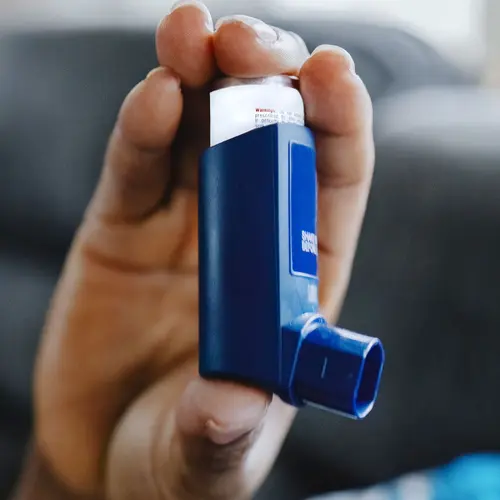Exercise is good for you, and you can exercise safely, even with allergic asthma. A little planning is all it takes to help you breathe easier and stay in shape.
Control Your Asthma
When your asthma is controlled, you should be much more able to exercise without problems. Medications can help lessen asthma symptoms and prevent flares.
Talk to your doctor about what types of exercise, and how often, are right for you.
Know Your Triggers
People with allergic asthma have the classic symptoms of wheezing and trouble breathing when they're around their triggers. Everyone is different, but the most common triggers are:
- Cats
- Mold
- Pollen
- Dust mites
- Cockroaches
Your doctor can help you figure out what your triggers are. Then try to avoid them when you work out.
Pick Your Day and Time of Day
If pollen makes your allergic asthma worse, keep close tabs on the pollen count in your area.
Try exercising outdoors in the early evening, when pollen counts are lower, instead of early morning when pollen counts are higher. Check online for your local pollen count before you head out.
When the pollen count is extra high, pass on your run or soccer game and exercise indoors that day instead.
Puff Before You Exercise
You should always carry a rescue inhaler, such as albuterol, with you. They work quickly to open up your airways. Use your rescue inhaler 10-15 minutes before exercising, even if you don't have symptoms.
Although it won't help your asthma, taking an antihistamine 60-90 minutes before going outside can help ease itchy eyes and a runny nose from pollen.
Warm Up
No matter what sort of exercise you prefer, warm up beforehand and ease into the activity. A few simple stretches and maybe a short walk before you run or pick up your tennis racket can set you up to make it through your exercise without breathing problems.
Love the Humidity
Warm air doesn't constrict your airways the way cold and dry air can. For that reason, swimming is often a good activity for people with allergic asthma. At the pool, you're breathing in warm, humid air that won't shut down your lungs.
Breathe Through Your Nose
Bringing in air through your nose will warm it up before it gets to your lungs. If you need to breathe through your mouth, purse your lips close together so they form an "O." That will help warm the air, too.
Take Breaks, Build Up
Short bursts of exercise will make an asthma attack less likely. Try walking a quarter of a mile and then resting. Or pick a sport that alternates levels of intensity. For example, in baseball, you run hard for a few seconds, then stand, then run again.
Conditioning your body for exercise is key. Start slowly, and build up your endurance and stamina over time.
Cool Down
When you're done, cool down before you stop exercising completely. Slow your pace. Do some more stretches to help switch from exercise to rest.

